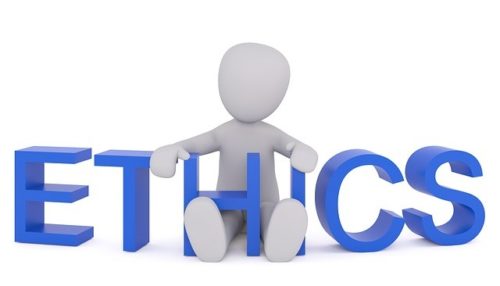- What is attachment
- Statutory framework
- Attachment against an individual
- Recoverable Costs in the Writ Application
- Ex-Parte Writ
- Supporting the application
- Intangible Benefits
- Tangible Benefits
- Writs of Possession
- Defending Attachment applications
-
Pre-judgment Writs of Attachment / Possession In this timely, and compelling, program, attorney, Craig Stein presents “Pre- judgement Writs of Attachment and Possession”. The program begins with and explanation of attachment and an overview of the statutory framework. The program continues with a discussion on attachment against an individual, recoverable costs, and supporting the application. Mr. Stein then explains the tangible and intangible benefits. The program concludes covering defending attachment applications. This program is a must for any attorney. Agenda
-
Pre-sentence Investigation (PSI) Critique: Mitigation as Counter Strategy in Child-Pornography Cases In this timely, and compelling, CLE program attorney Mark Silver presents “Pre-sentence Investigation (PSI) Critique: Mitigation as Counter Strategy in Child-Pornography Cases”. The program begins with an explanation of what PSI is. The program continues with a discussion on the importance of PSI and what is missing from these investigations. Mr. Silver then presents evaluation tools and mitigation challenges. This program is for any attorney. Agenda:
- What is Pre-Sentence Investigation (PSI)
- Why this PSI is important
- What is missing from the PSI
- Evaluation tools
- Mitigation Challenges
-
Preparing Clients for Deposition: An Investment in Performance In this timely and compelling program, attorney, Alan Fanger Presents, “Preparing Clients for Deposition: An Investment in Performance”. Mr. Fanger begins the program with an overview of deposition goals and some client myths. Attorney Fanger continues the program by, systemically, covering the types of clients and how to approach each one. The program continues with general deposition guidelines and the best way to answer deposition questions. Mr. Fanger proceeds to explain the methods of deposition preparation. The program concludes with a discussion on mediation. With Mr. Fanger’s decades of experience, this program is a must for any attorney Agenda:
- Goal of Deposition
- Client Myths
- Types of Clients and Approaches
- General Deposition Guidelines
- Answer Deposition Questions
- Methods of Deposition Preparation
- Meditation
-
Principles for a Successful Jury Trial In this timely and compelling CLE program, attorney, Bernie Brown presents Principles for a Successful Jury Trial. Mr. Brown covers everything from selecting the best jury to examining witnesses, and approaches to successful jury verdict. With Mr. Brown's extensive experience, attorneys will be able to walk into a jury trial with confidence and the skills they need to succeed. Agenda: Preparing for Trial Dealing with Witnesses and Evidence Selecting and dealing with Jurors Opening and Closing Arguments Winning Attitude
-
Psychosocial Evaluations and Consultation in Civil Litigation: Strategies to Understand and Humanize the ClientMany civil litigation attorneys (plaintiff and defense), particularly in the fields of personal injury and medical malpractice, struggle to understand the harm or injury their clients have suffered. In this course, forensic expert Mark Silver provides for the lawyer the psychosocial evaluation as a useful and humanistic tool to better conceptualize and understand the harms that the client has suffered, such that the lawyer can advocate for the client in a more informed and holistic manner with a consideration for a broad range of harms that may require compensation.Learning Objectives:I. Understand a new tool to add to a personal injury (or medical malpractice) practice to evaluate the harms clients have suffered for evaluation purposesII. Identify the possible psychological effects of harm from an injury in a much broader mannerIII. Recognize how to advocate for your client by understanding a broader range of harms
-
Religious Land Use and Institutionalized Persons Act
-
Second Circuit Court of Appeals: Practice and Procedure In this compelling and timely CLE program, attorney, Jacquelyn Mouquin, presents “Second Circuit Court of Appeals: Practice and Procedure”. Attorney Mouquin begins the program discussing basic terms, jurisdiction, and admission to the court. The program continues to cover preliminary forms, briefing scheduling, and formats of briefs. Attorney Mouquin also goes in depth explaining oral arguments, motions, and petitions. The program concludes and with the difference between civil and criminal appeals. This course is for any attorney wishing to know more about the Second Circuit Court of Appeals.
-
"Shackled to Our Screens: How Technology Has Imprisoned the Legal Profession"
-
South Carolina 2 Ethics and 1 Substance Abuse Bundle - All courses approved in South Carolina Courses Include: Ethical Issues - Pro Bono Representation: Help the Profession Help Others (1 Ethics Credit) Ethical Obligations for Clients with Mental Health Impairments (1.06 Ethics Credits) Everything You Want to Know About Distressed Lawyers (1 SA/MA Credit)
-
South Carolina 8 Credit Bundle with 2 Ethics and 1 Substance Abuse Credit All Courses Approved in South Carolina. Bundle Courses Include: Welcome to the NFL, Rook! Lawyers Wrangling Elites & Egos (1.6 Credits) Civil Settlement Techniques (1.55 Credits) Religious Land Use and Institutionalized Persons Act (2 Credits) Ethical Issues - Pro Bono Representation: Help the Profession Help Others (1 Ethics Credit) Ethical Obligations for Clients with Mental Health Impairments (1.06 Ethics Credits) Everything You Want to Know About Distressed Lawyers (1 SA/MA Credit)
-
South Carolina 8 Credit Bundle with 2 Ethics and 1 Substance Abuse Credit All Courses Approved in South Carolina. Bundle Courses Include: Welcome to the NFL, Rook! Lawyers Wrangling Elites & Egos (1.6 Credits) Civil Settlement Techniques (1.55 Credits) Religious Land Use and Institutionalized Persons Act (2 Credits) Ethical Issues - Pro Bono Representation: Help the Profession Help Others (1 Ethics Credit) Ethical Obligations for Clients with Mental Health Impairments (1.06 Ethics Credits) Everything You Want to Know About Distressed Lawyers (1 SA/MA Credit)
-
Staying Safe and Sound - Maintaining A Work/Life Balance in Uncertain Times We know that you are most likely being bombarded with messages about the Coronavirus, whether that be on television, social media, or in your community networks. At uncertain times like this, anxiety, stress, fear and negative thoughts can easily take control. You may be worried about being in crowds, your loved ones, your seniors, your office, your clients, your finances or how to manage whatever the future holds as we prepare to return to the “new normal” in our personal and professional lives. The question facing everyone in the legal profession is compelling and far-reaching: “Will I ever be able to maintain a work/life balance “? Recent studies have shown that there has been a dramatic increase in impairment due to alcoholism, addiction and mental health disorders among members of the legal profession. The statistics are compelling and clearly indicate that 1 out of 3 attorneys will likely have a need for substance use or mental health services at some point in their careers. Accordingly, unexpected events like those we are facing as a society will have an even greater impact on lawyers and those who work with them. Agenda:
- The prevalence rates of impairment in the legal profession due to substance use and mental health issues prior to COVID-19.
- Causes and symptoms of depression, stress and anxiety
- The impact of COVID-19 crisis on mental health issues and the role isolation plays
- Fear associated with the uncertainty surrounding the future of the legal industry
- Well- being strategies to reduce or alleviate these conditions
- Tips for maintaining a healthy and productive work/life balance
- Ethical dilemmas created by the Coronavirus crisis, including remote supervision of attorneys and staff, record and timekeeping, data security and confidentiality in the remote office setting.
- Why legal professionals are at higher risk to develop mental health and substance use disorders
- Challenges and barriers facing legal professionals from seeking help
- The free, confidential services provided by Lawyers Assistance Programs to lawyers, their family members, judges and law students
- The role that education plays in breaking the stigma and fear associated with addiction and mental illness in the legal profession
- Resources available to both lawyers and support staff with emphasis on COVID-19 issues


